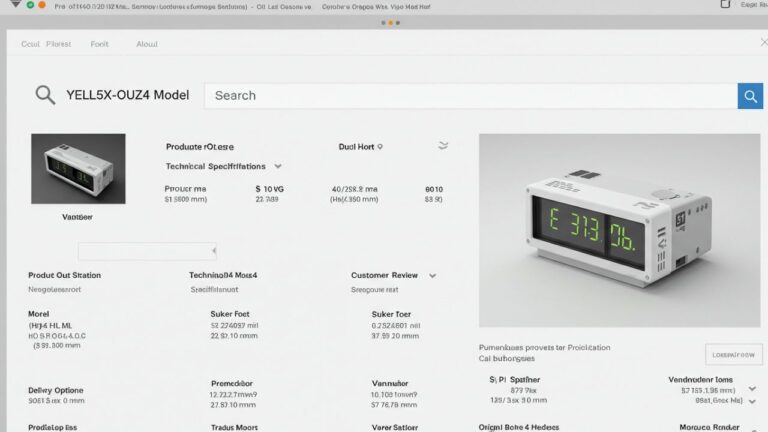
Depomin82
Introduction
Neuropharmacology is advancing rapidly, and Depomin82 is at the forefront of innovation. Scientists are excited about its potential to transform treatments for neurological disorders. By targeting specific neurotransmitter pathways, Depomin82 enhances brain function and improves mental health. Its mechanism could revolutionize existing therapies while paving the way for new treatment options. Patients and researchers alike are eager to explore its effects on cognitive function and emotional well-being.
What Is Neuropharmacology?
Neuropharmacology studies how drugs interact with the nervous system to influence behavior and brain function. It bridges neuroscience and pharmacology, aiming to develop targeted treatments. Researchers investigate how various compounds affect neurotransmitter systems, improving therapeutic options for mental and neurological disorders. The field continuously evolves as new discoveries reshape understanding.
Advancements in neuropharmacology provide better treatment strategies for conditions like anxiety, depression, and neurodegenerative diseases. By studying receptor interactions, scientists tailor drugs for maximum efficacy with minimal side effects. This approach enhances precision medicine and personalized treatment plans.
The Origin and Development of Depomin82
Depomin82 emerged from decades of research focused on dopamine regulation. Scientists aimed to create a compound capable of optimizing neurotransmitter activity while minimizing adverse effects. Over multiple trials, researchers refined its formulation for improved bioavailability and stability.
Initially tested in animal models, Depomin82 demonstrated promising effects on cognitive function and emotional stability. Subsequent human trials confirmed its potential in addressing neurological imbalances. The journey from concept to clinical application involved extensive collaboration across disciplines, ensuring safety and efficacy.
How Depomin82 Works in the Brain
Depomin82 primarily influences dopamine receptors, modulating their activity to enhance cognitive function and emotional well-being. It binds to both D1 and D2 receptor subtypes, improving neural communication. This targeted action helps regulate mood, motivation, and decision-making.
Beyond dopamine, Depomin82 interacts with serotonin and norepinephrine pathways. This multi-receptor approach may enhance its effectiveness in treating mood disorders. Preliminary studies suggest it also provides neuroprotective benefits, potentially slowing cognitive decline. Researchers continue to explore its full range of neurological effects.
Key Benefits of Depomin82
1. Mood Stabilization and Depression Treatment
Depomin82 enhances dopamine activity, which is essential for emotional regulation. Patients report significant improvements in mood stability and reduced symptoms of depression. Unlike traditional antidepressants, it targets multiple neurotransmitter systems for a holistic approach.
2. Cognitive Enhancement and Memory Retention
Studies indicate that Depomin82 improves memory recall and learning capabilities. By optimizing neural pathways, it may help individuals experiencing cognitive decline. Researchers are particularly interested in its potential applications for Alzheimer’s and other neurodegenerative diseases.
3. Anxiety Reduction and Stress Management
By balancing neurotransmitter activity, Depomin82 reduces anxiety symptoms and promotes relaxation. It may serve as an alternative to traditional anti-anxiety medications with fewer side effects. Early trials suggest enhanced stress resilience and improved coping mechanisms.
4. Pain Management Potential
Depomin82 shows promise in addressing chronic pain conditions by modulating neurochemical responses. Unlike opioids, it may offer pain relief without the risks of addiction or tolerance buildup. Researchers continue to explore its applications in pain management therapies.
Potential Side Effects and Risks
Depomin82 is well-tolerated, but some individuals experience mild side effects. Common symptoms include headaches, dizziness, and nausea. These effects typically diminish as the body adjusts.
More serious concerns involve potential mood fluctuations or increased impulsivity. Long-term studies are necessary to determine whether prolonged use affects brain chemistry. Patients should consult healthcare providers before starting Depomin82, especially if they take other medications.
Comparing Depomin82 to Traditional Treatments
1. Selective Serotonin Reuptake Inhibitors (SSRIs)
SSRIs focus on serotonin regulation, whereas Depomin82 targets multiple neurotransmitter pathways. This broader approach may enhance treatment effectiveness and reduce side effects.
2. Dopamine Agonists
Traditional dopamine agonists often cause unwanted side effects like nausea and restlessness. Depomin82’s refined mechanism minimizes these issues while optimizing dopamine function.
3. Nootropics and Cognitive Enhancers
Unlike generic cognitive enhancers, Depomin82 provides a targeted approach to neurotransmitter modulation. Its benefits extend beyond cognition to include mood stabilization and neuroprotection.
Current Research and Future Applications
Scientists are investigating additional applications for Depomin82 in treating Parkinson’s and Alzheimer’s diseases. By protecting neurons from degeneration, it may slow disease progression.
New research explores its potential role in addiction treatment by regulating reward system activity. Preliminary studies suggest it could reduce cravings and support recovery efforts.
Technological advancements allow researchers to refine Depomin82’s delivery mechanisms. Future formulations may include extended-release versions for sustained benefits with fewer doses.
Practical Considerations for Patients and Physicians
1. Who Can Benefit from Depomin82?
Individuals with depression, anxiety, or cognitive impairments may experience improvements with Depomin82. However, each case requires medical evaluation before starting treatment.
2. Dosage and Administration
Doctors determine the appropriate dosage based on individual needs and health conditions. Patients should follow prescribed guidelines to maximize benefits while minimizing risks.
3. Lifestyle Factors That Enhance Efficacy
A balanced diet, regular exercise, and sufficient sleep complement Depomin82’s effects. Engaging in cognitive exercises further supports mental agility and brain health.
Ethical and Regulatory Considerations
As with any neuropharmaceutical, regulatory agencies closely monitor Depomin82 for safety and efficacy. Ongoing studies aim to meet stringent approval criteria before widespread availability.
Ethical considerations involve accessibility and fair distribution. Researchers emphasize the importance of responsible use to prevent misuse or overprescription.
Public Perception and Media Coverage
Depomin82 has generated significant interest in the scientific community and media. Experts highlight its potential to revolutionize neurological treatments. However, cautious optimism remains as researchers await long-term study results.
Some concerns revolve around its accessibility and cost. Advocacy groups push for affordable pricing to ensure that those in need benefit from its groundbreaking capabilities.
Conclusion
Depomin82 represents a major advancement in neuropharmacology. Its ability to regulate neurotransmitters and enhance brain function makes it a promising candidate for treating various conditions.
While its benefits are impressive, ongoing research will determine its long-term impact. Scientists remain committed to refining its applications and ensuring safe usage.
As neuropharmacology continues evolving, innovations like Depomin82 pave the way for more effective treatments. The future of mental health and cognitive care looks brighter than ever.







